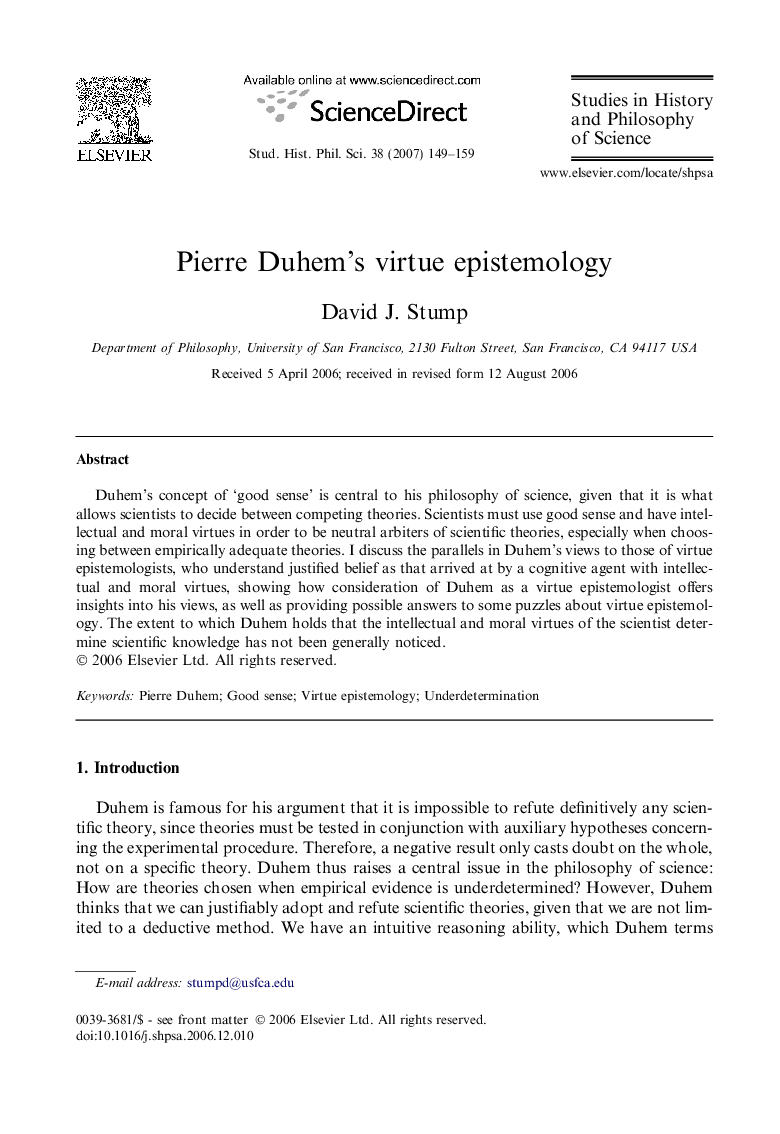| Article ID | Journal | Published Year | Pages | File Type |
|---|---|---|---|---|
| 1160777 | Studies in History and Philosophy of Science Part A | 2007 | 11 Pages |
Duhem’s concept of ‘good sense’ is central to his philosophy of science, given that it is what allows scientists to decide between competing theories. Scientists must use good sense and have intellectual and moral virtues in order to be neutral arbiters of scientific theories, especially when choosing between empirically adequate theories. I discuss the parallels in Duhem’s views to those of virtue epistemologists, who understand justified belief as that arrived at by a cognitive agent with intellectual and moral virtues, showing how consideration of Duhem as a virtue epistemologist offers insights into his views, as well as providing possible answers to some puzzles about virtue epistemology. The extent to which Duhem holds that the intellectual and moral virtues of the scientist determine scientific knowledge has not been generally noticed.
